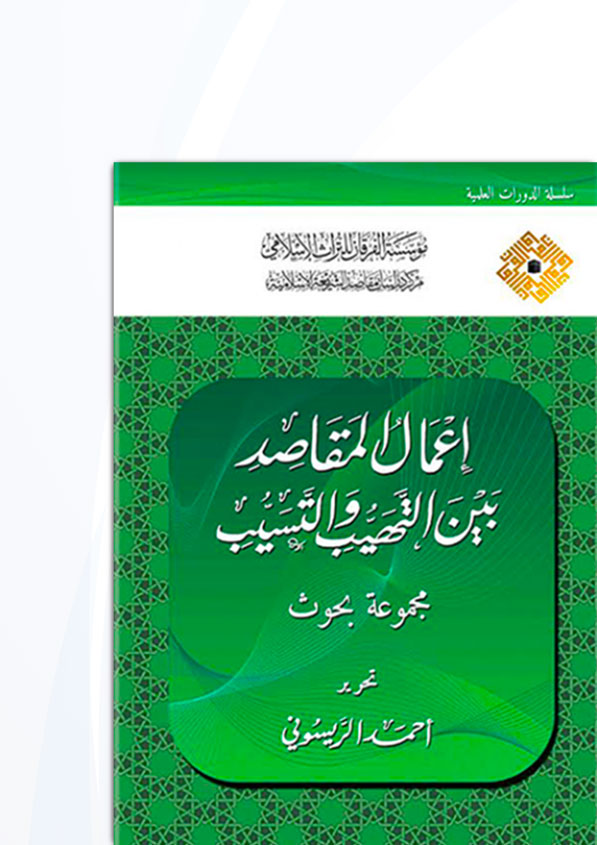Summary
This book is composed of a set of researches and scientific papers presented at the training course organised by the Maqāṣid centre at Al-Furqān Foundation, in cooperation with the maqāṣid Research & Studies Centre (Rabat), Université Sidi Mohamed Ben Abdellah (Sais-Fes) and the Faculty of Letters & Humanities (Sais-Fes) - Masters Course on the Maqāṣid al-Sharīʿah, and held over three days from 28 - 30 May 2014, in the city of Fez, the Kingdom of Morocco, titled “Applying the philosophy of Islamic law (maqāṣid) between fear and leniency”.
The researches addressed the different trends and approaches vis-à-vis maqāṣid, and hence, the way it is tackled and applied both in the past and the present; these approaches are summarised in: fear and aversion of applying it, represented by the literalist (ẓāhirīyah) and rigid extremist trends; the lenient, i.e. unrestricted and excessive, approach of the neo-interpretists (al-muʾawwilah al-judud), which calls for disregarding the partial texts (al-nusūs al-juzʾiyyah), so as to “apply” the general universal purposes (al-maqāṣid al-kulliyyah al-ʿāmmah); and the moderate and balanced approach, represented in a trend that treats the philosophy of Islamic law (maqāṣid) without leniency leading to imprecision, or fear resulting in paralysis. The researches also presented model case studies applied to the areas of family, economy, finance, and public and private freedoms, as well as the political, constitutional, criminal, etc.



Reviews
There are no reviews yet.